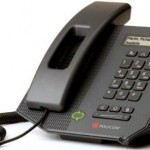Posted at 12/19/2010 @ 12:23 by USB Labs Admin
USB Labs provides USB device firmware development and consultation, as well as assistance with hardware designs and USB compliance (logo) issues.
USB Labs can provide solutions ranging from complete turnkey designs to small USB code modules (device firmware “stacks”).
USB Labs Principle Engineer, Nigel Featherston has been involved with USB since 1995.
At Microsoft, Nigel created an architecture for USB device firmware that has found its way into many USB products. One key aspect of this device framework is robust error handling, and reliability.
Nigel Featherston was personally involved in the following USB products:
Intellimouse – The first Microsoft USB mouse
Intellimouse Explorer – The first Microsoft optical USB mouse
Various Microsoft USB keyboards
Game Voice – A HID device for gaming
USB Office Telephones for Microsoft Office Communicator – (Catalina & Oak projects)
Nigel is named as a co-inventor on ten U.S. Patents.
In 1996 Nigel specified an 8-bit microcontroller instruction set that is currently used in the popular Cypress M8A and M8B USB microcontrollers. Nigel also consulted in the design of the expanded M8C instruction set used primarily in the Cypress PSoC (Programmable System on a Chip).
Nigel participated in a number of USB.org activities, and helped to clarify some aspects of USB device behavior. For a short time, Nigel participated on the USB Core Team (along with two other Microsoft engineers). Nigel was responsible for adding an index to the USB 1.1 specification. Nigel helped to define USB/HID normal and “boot” protocols for keyboards.
Nigel is a co-inventor of a method whereby a peripheral device can automatically determine whether it is connected to a PS2 or USB port.
In addition Nigel created USB firmware for a demonstration of Ir-Bus (a.k.a IrDA Control) at COMDEX in Las Vegas. Ir-Bus was a proposed infrared wireless standard for PC peripherals. The Ir-Bus demonstration unit emulated a USB hub without actual hub switching hardware.
Mr. Featherston also has considerable hardware design experience, and has developed firmware for many of the popular 8, 16, and 32-bit microcontrollers.

